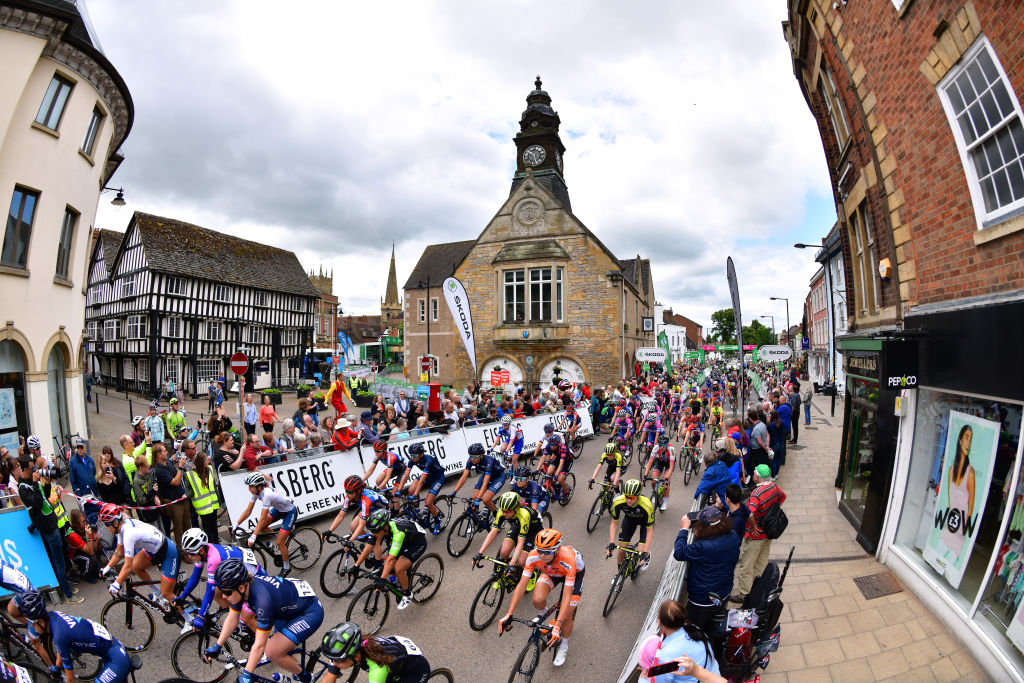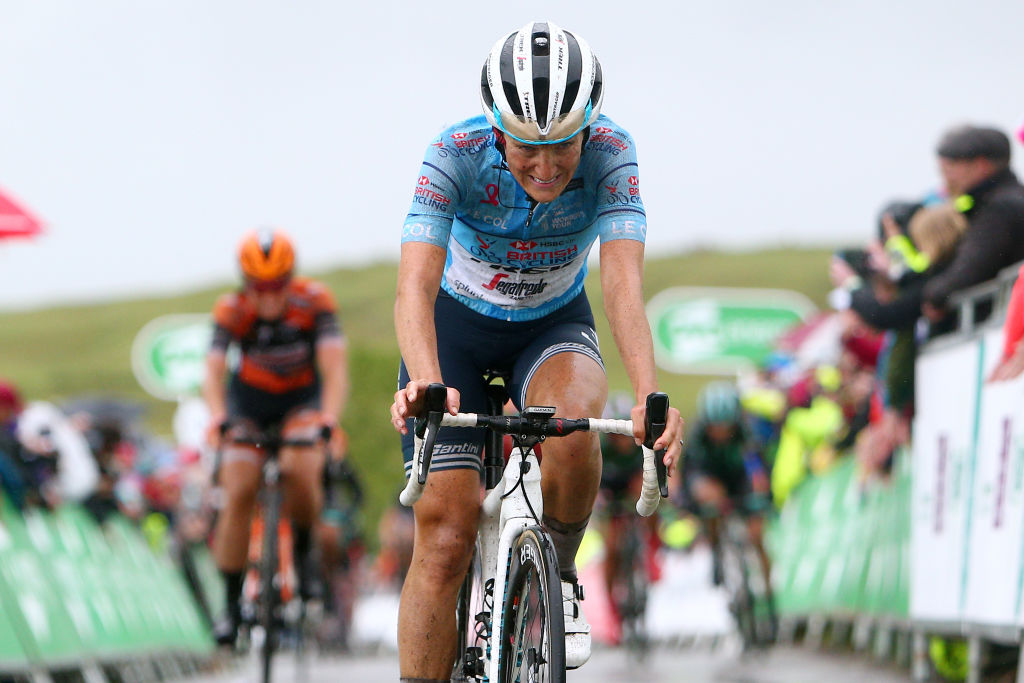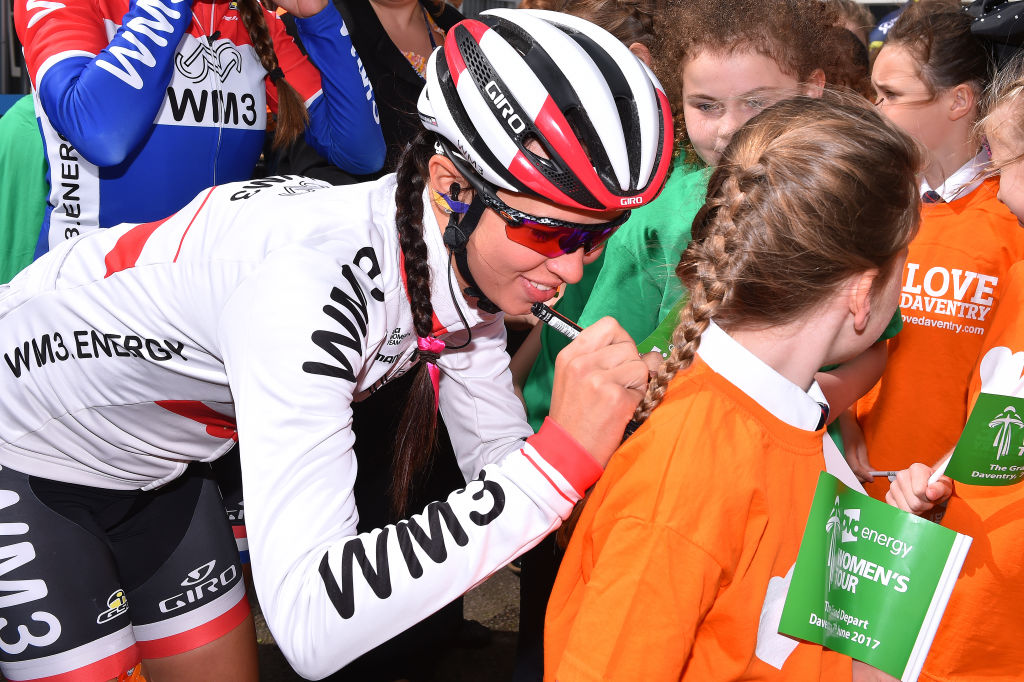There's still a long way to go for equality as survey respondents say 'women are inferior in sport'
Respondents thought women competing in male dominated sports looked 'weak, slow and boring' - but were fine with watching them play hockey


The latest race content, interviews, features, reviews and expert buying guides, direct to your inbox!
You are now subscribed
Your newsletter sign-up was successful
This week has been a dream. Every night, I have settled down to a full hour of women’s cycling – on mainstream TV: ITV4, no less.
It’s not that I don’t get on-screen cycling action on a regular basis: this week the Critérium du Dauphiné has been screaming from Cycling Weekly’s in office TV daily. Live.
But women’s cycling is different. I’m more invested in the personalities, or as much as I can be when I get to see the characters racing so infrequently.
I won’t pretend my eyes weren’t stinging as Marianne Vos dive-bombed the verge whilst her CCC-Liv team mate flew over the bars (thanks, UK roads) on Wednesday’s stage three.
It seems, however, that I’m in the minority. A survey run by Insure4Sport has shown that four in 10 UK viewers “do not believe women’s sport should get equal TV coverage to men’s sport.”
The survey explored viewing habits in sports such as football, rugby, boxing, tennis, and cycling as well as hockey and volleyball. The latter two sports where the only pursuits where respondents said they were more likely to watch women's games than men's.
Around a third of respondents said “women are less entertaining” and one in four clicked yes to "women are inferior at sport".
The latest race content, interviews, features, reviews and expert buying guides, direct to your inbox!
The survey of 2,000 people nationwide comes soon after 4.6 million people tuned in to watch England thrash Scotland in the World Cup, and in the same week that we’ve seen crowds line the roads as the Ovo Energy Women’s Tour rushes through our lanes.
Of the women surveyed, one third said that they prefer to watch men on screen – giving reasons such as:
- I think women lack enthusiasm
- I find them slow, weak and boring
- I think sports are mostly for men
Men gave comments such as:
- It’s bad enough having women commentators never mind players
- I only watch sexy women
- Skill of women’s sport is awful
Interestingly, despite saying that they didn’t enjoy seeing women on TV, one in four also stated that they blamed a “lack of TV and media coverage” for their disinterest.
In addition, over a third said they “don’t feel the opinions of female sports commentators and pundits are as valid as those of their male counterparts.”
The survey results make disappointing reading – especially when my own, admittedly echo-chamberesque, social media channels are buzzing with appreciation for the excellent platform events like the Ovo Energy Women’s Tour are giving the women who most inspire me.

Commenting on the findings, former world champion, Lizzie Deignan – who wears the Best British Rider jersey in the race and is nudging the GC – said: “There is obviously still a long way to go to achieve parity in sport.
“Hopefully greater coverage of female participation, combined with more national campaigns such as This Girl Can, will continue to change attitudes towards women in sport for the better.
"The more that other women see female role models the more I hope women of all ages will be encouraged to take part in sport themselves and hopefully more people of both sexes will watch women’s sport at an elite level.”
Deignan has a point: those surveyed were more likely to watch women play volleyball or hockey, as opposed to rugby or football, and around half of those who watch cycling said they watch women's racing.
It's hard to believe this discrepancy could be a result of anything outside of representation. Hockey, for example, utilises many of the same skills and strengths as football - where women are considered "slow, weak and boring."
Whilst people still see a huge range of sports as "for men," they're unlikely to tune in or engage in women participating - at any level.
One respondent even commented: "Most of these sports were predominately male sports and women want to do everything we do. I would frown if men played volleyball or did synchronised swimming."
Thankfully, the wheels of change are in motion. Whilst we don't have TV viewing data divided by age, only 18 per cent of those under 25 agreed that male footballers deserved to be paid more than female footballers, as opposed to 28 per cent of those aged 35 or older - signifying there is hope on the horizon.

The Sport England 'This Girl Can' campaign was launched in 2015 to help combat ideas that women 'look bad' whilst doing sport, with a goal of increasing dwindling activity levels which typically kick off around puberty - when women often become more self conscious around their appearance.
Just one year later, it was revealed that the campaign had motivated 2.8 million more women aged 14-40 to increase their activity levels.
Similarly, British Cycling's campaign to get one million more women on bikes by 2020 is streets ahead of target - whilst women still only represent a third of regular cyclists, the national governing body has boasted more than 800k women now cycling.
The more interest there is in women's cycling, the bigger the budgets will be, the greater the prize money and more professional the sport will become. When more women are able to drop their day jobs and train full time, the number of talented riders able to stay in the sport long enough to reach their potential might increase, too.
That interest will only happen if the public sees more sports as pursuits that are suitable for women, as well as men. The more young women and girls know that This Girl Can, the brighter the future is for all of us.
Michelle Arthurs-Brennan the Editor of Cycling Weekly website. An NCTJ qualified traditional journalist by trade, Michelle began her career working for local newspapers. She's worked within the cycling industry since 2012, and joined the Cycling Weekly team in 2017, having previously been Editor at Total Women's Cycling. Prior to welcoming her first daughter in 2022, Michelle raced on the road, track, and in time trials, and still rides as much as she can - albeit a fair proportion indoors, for now.
Michelle is on maternity leave from April 2025 until spring 2026.
